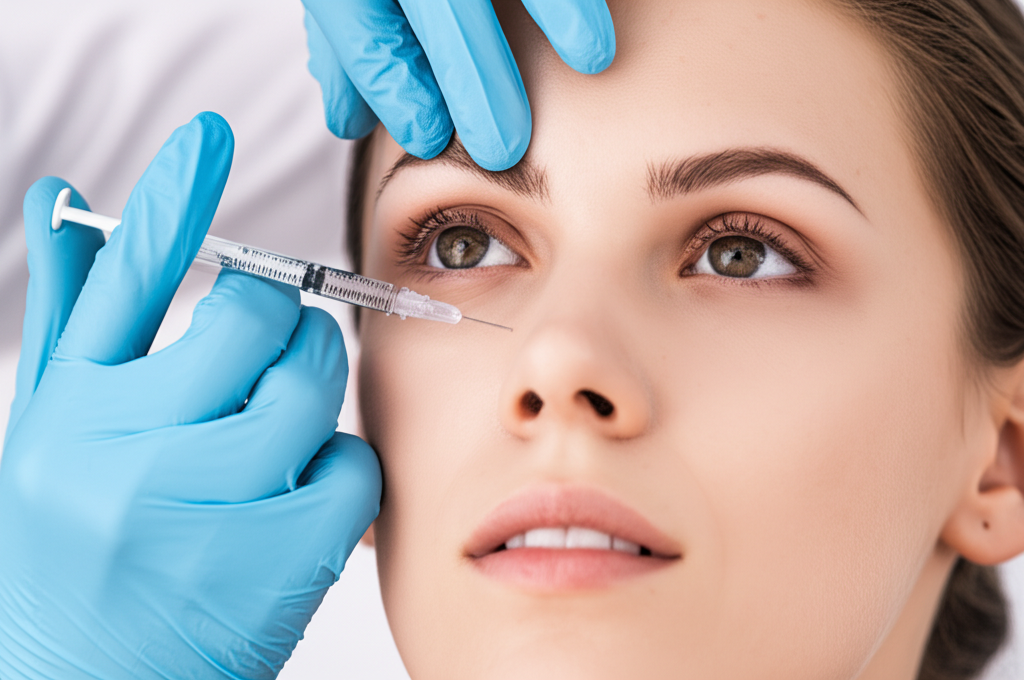The Truth About Botox: Debunking Common Myths
Dr. Sarah Johnson
Board Certified Dermatologist
May 1, 2023
12,540 views

Botox is one of the most popular cosmetic treatments worldwide, yet it remains surrounded by misconceptions and myths. As a board-certified dermatologist with over 15 years of experience administering Botox, I've heard it all—from concerns about "frozen faces" to fears about toxicity. Today, I'm setting the record straight on some of the most common Botox myths.
Myth #1: Botox Makes Your Face Look Frozen and Unnatural
Perhaps the most pervasive myth about Botox is that it inevitably results in an expressionless, "frozen" appearance. This misconception stems from the early days of Botox use and from instances of over-treatment.
The truth is that when administered by a skilled practitioner, Botox should provide a refreshed, natural appearance while preserving facial expressions. Modern techniques focus on strategic placement and appropriate dosing to relax specific muscles without affecting your ability to express emotions.
The "frozen" look occurs when too much product is used or when it's placed incorrectly. Today's approach is much more conservative and customized to each individual's facial anatomy and goals.
Myth #2: Botox Is Toxic and Dangerous
Yes, Botox is derived from botulinum toxin, which in large amounts can be harmful. However, the amounts used in cosmetic treatments are minimal and highly purified.
Botox has been FDA-approved for cosmetic use since 2002 and has one of the best safety profiles of any medical treatment. Millions of treatments are performed each year with very few adverse effects when administered by qualified professionals.
It's worth noting that Botox is also used therapeutically for numerous medical conditions, including chronic migraines, excessive sweating, and certain muscular disorders—a testament to its safety when used appropriately.
Myth #3: Once You Start Botox, You Can Never Stop
Some people worry that starting Botox creates a dependency—that if they stop, they'll look worse than before they started. This simply isn't true.
If you discontinue Botox treatments, the treated muscles will gradually regain their activity, and your skin will return to its natural state of movement. You won't develop additional wrinkles or experience accelerated aging if you stop.
Many of my patients use Botox intermittently, perhaps getting treatments before special events or during certain seasons, with no adverse effects from this pattern of use.
Myth #4: Botox Is Only for Older People with Wrinkles
Increasingly, younger patients in their 20s and early 30s are seeking Botox as a preventative measure. This approach, sometimes called "preventative Botox," aims to reduce the formation of dynamic wrinkles before they become etched into the skin.
By subtly relaxing muscles that create expressions like frowning or squinting, Botox can help prevent the formation of deeper lines over time. There's no specific "right age" to start Botox—it depends on your skin, genetics, and personal goals.
Myth #5: Botox and Fillers Are the Same Thing
This is a common confusion. Botox and dermal fillers are entirely different treatments that address different concerns.
Botox works by temporarily relaxing muscles to reduce the appearance of dynamic wrinkles (those formed by facial movements).
Fillers, on the other hand, add volume to areas that have lost fullness due to aging or to enhance features like lips or cheeks. They're made of substances like hyaluronic acid that physically "fill in" areas of volume loss or lines.
Many patients benefit from both treatments as part of a comprehensive approach to facial rejuvenation.
The Bottom Line
Botox is a well-established, safe treatment when performed by qualified practitioners. Like any medical procedure, it comes with potential risks and benefits that should be discussed during a thorough consultation.
If you're considering Botox, seek out a board-certified dermatologist or plastic surgeon with extensive experience. Bring your questions and concerns, and expect a customized approach that addresses your specific goals while maintaining a natural appearance.
When it comes to aesthetic treatments, education is key to making informed decisions that you'll be happy with long-term.


Comments
Join the conversation! Share your thoughts and experiences below.